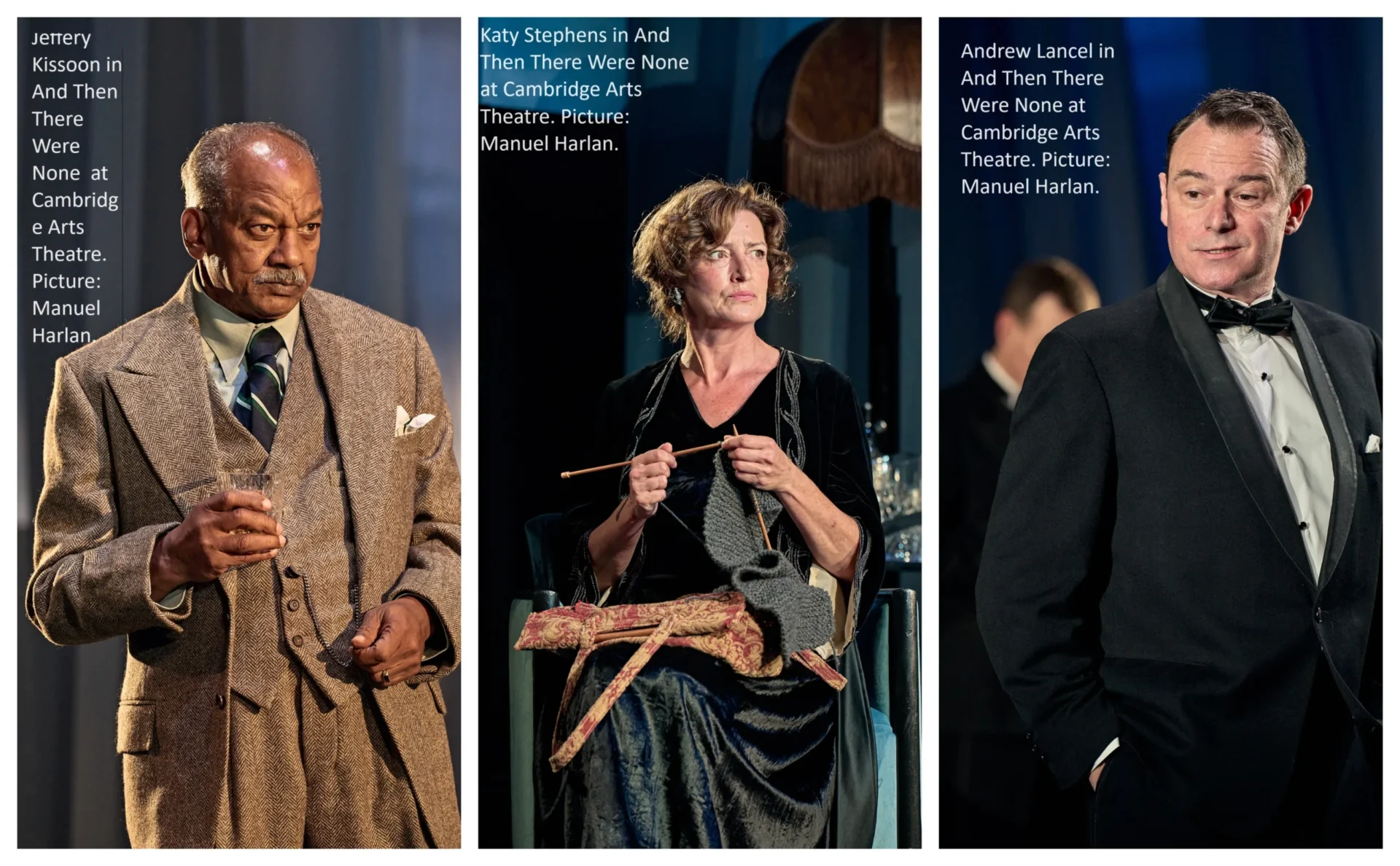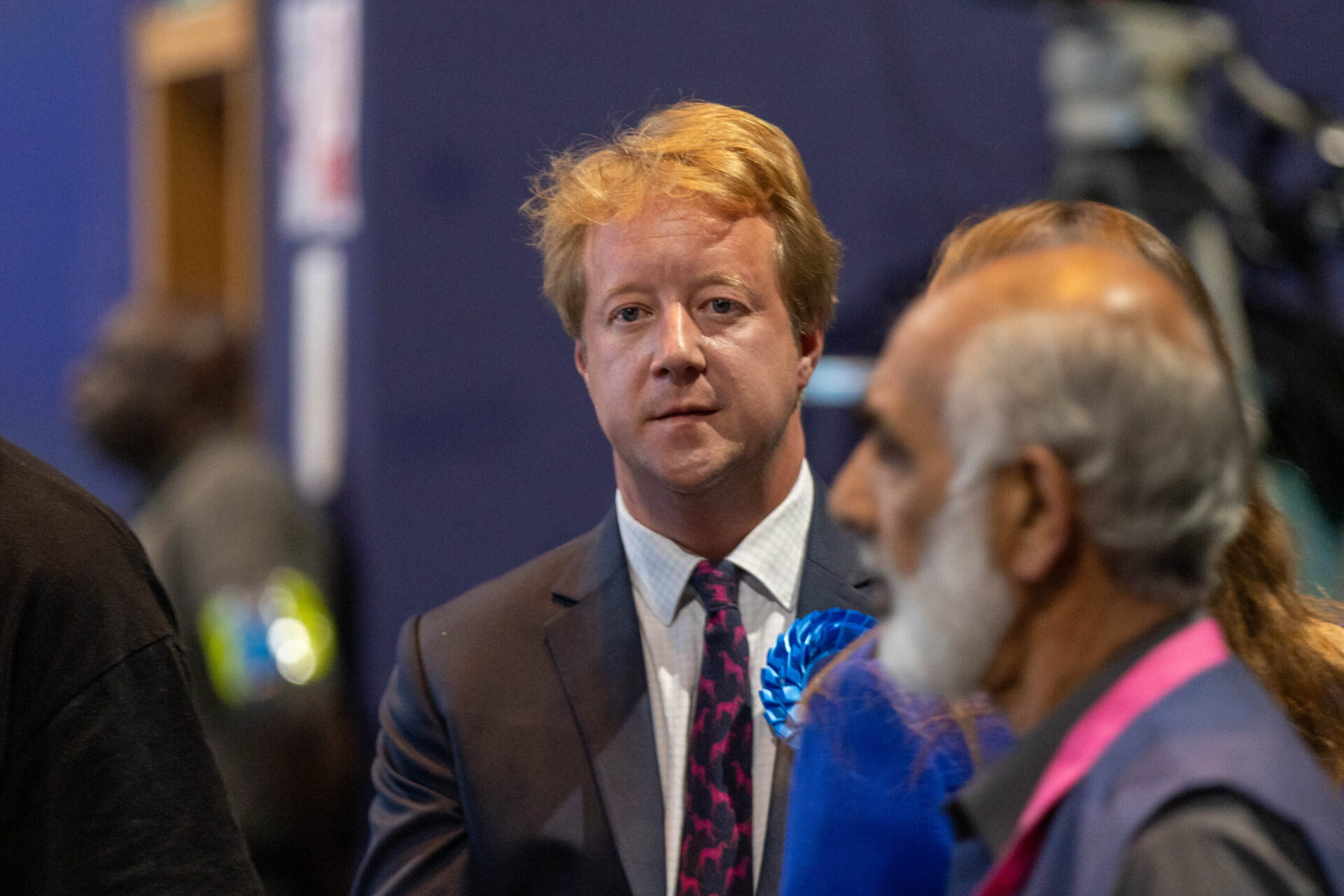Agatha’s Christie’s masterpiece And Then There Were None is a grim play, not lightened in this production by a lot of humour. There are comic characters and good lines in it – as there are in Christie’s other famous murder mystery The Mousetrap – which opened in London’s West End in 1952 and is still running.
And Then There Were None first appeared as a book in 1939 and was adapted by Christie herself as a play in 1943. This version avoids falling into melodrama despite the arch plot and despite the comic potential of some of the characters, is not played for laughs.
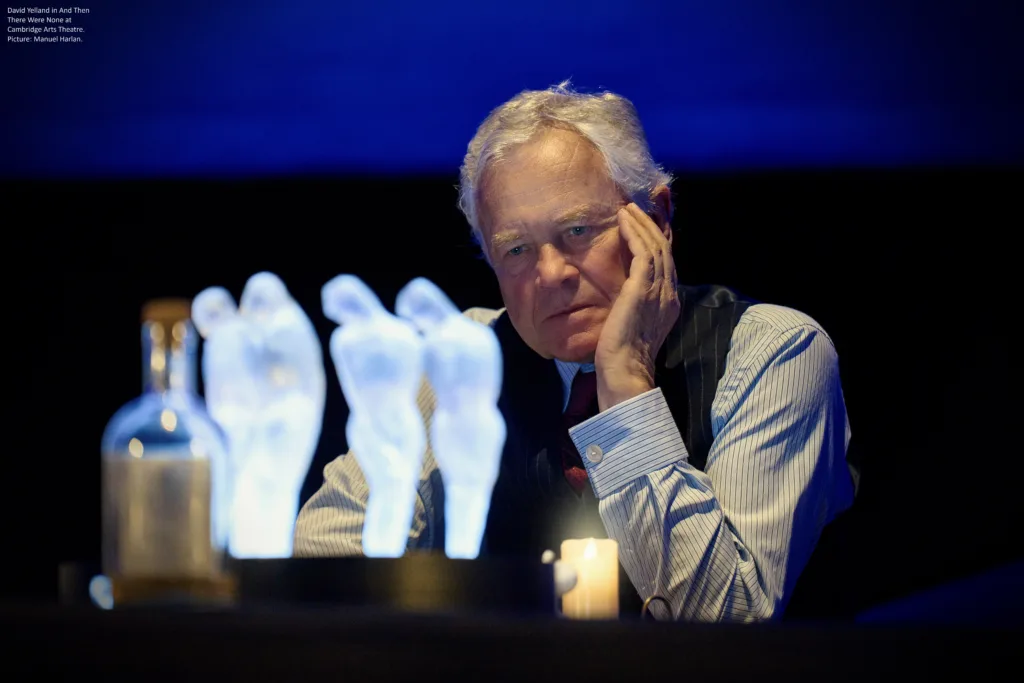
It fixes firmly on the horror. On a cold November night, the theatre was warm but there was a chill coming off the stage.
The play opens with the ten characters behind a gauze curtain. Each reads out a letter inviting them to a house party in a mansion on a remote island. They think the letter is from someone they know. None of them know each other. That allows some super exposition.
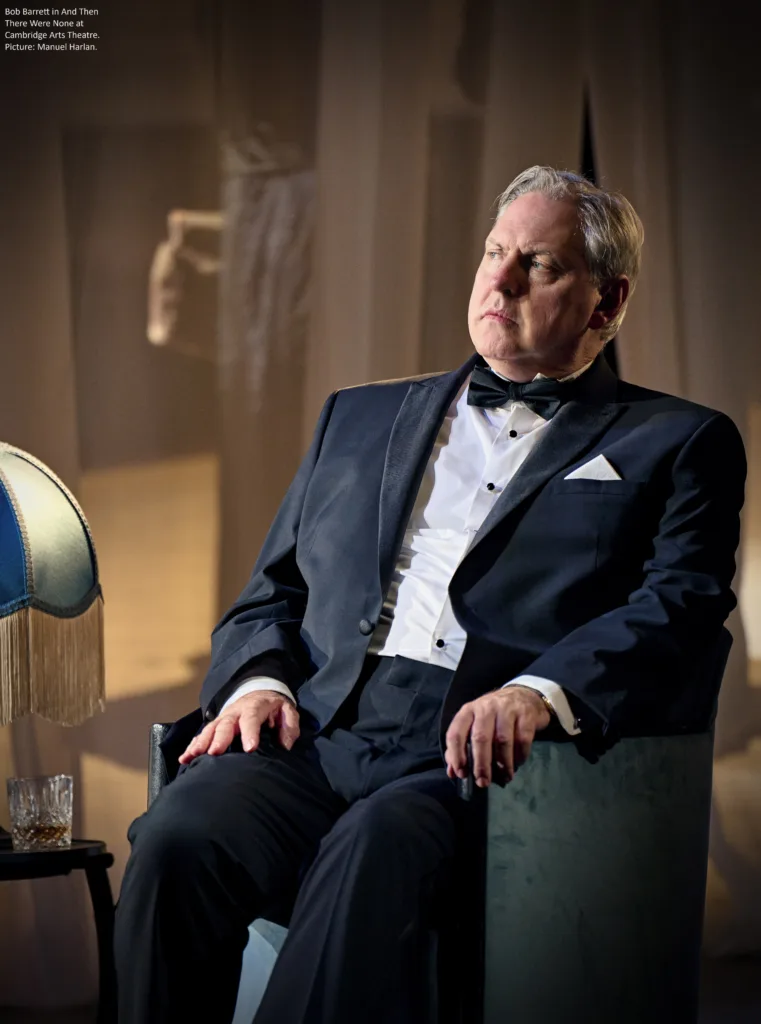
As they arrive one by one, every guest is introduced to all the others, so they lean forward, shake hands, and announce their names several times.
After dinner and after they have realised that the people, they thought had invited them are not there and not coming, a gramophone record is played in front of all of them reminding each character of their past guilty crime.
Everyone there is responsible for the death of least one innocent person.
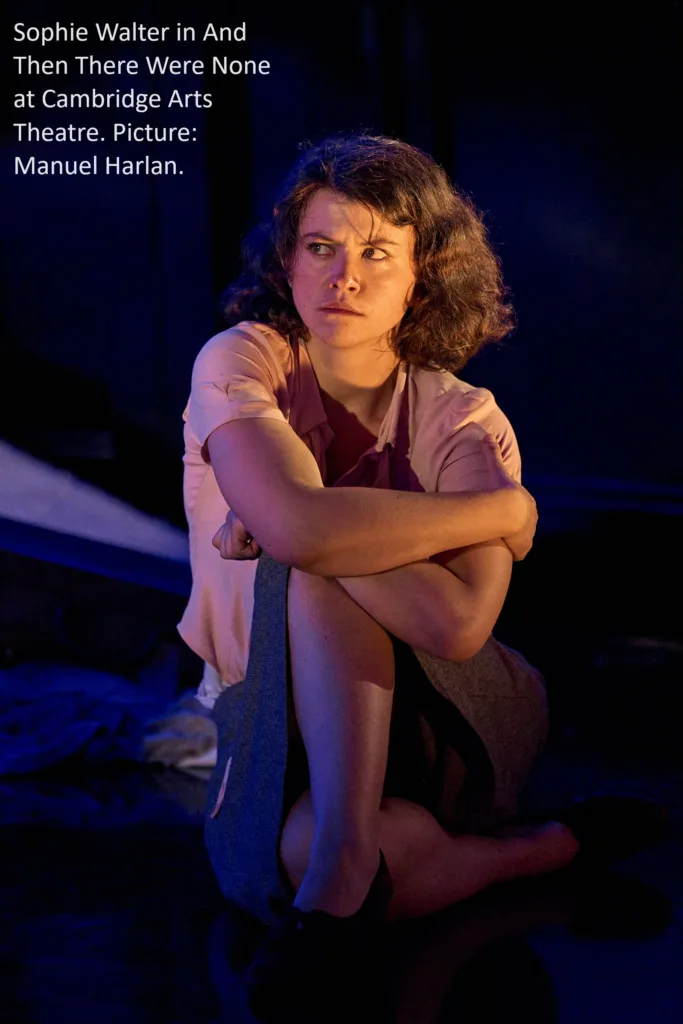
One by one they are going to die, and everyone is going to suspect everyone else of being the killer.
As my mother-in-law used to say when absorbed watching horror films: “I wouldn’t stay there.” But they can’t leave. There is no telephone in the house and no boat will arrive from the mainland.
The set by Mike Britton emphasizes the remoteness. All around is sea and sky.
A strong cast builds up the tension, everyone is convincing in their characterisation…and in their fear. You believe you are seeing a soldier (Joseph Beattie) a doctor (Bob Barrett) a judge (David Yelland), a hooray Henry (Oliver Clayton) and a general (Jeffery Kissoon – who has his own Oscar-worthy moment).
There are strong performances from Lucy Tregear as the hired housekeeper Mrs Rogers and Sophie Walter as the young secretary Vera Claythorne.
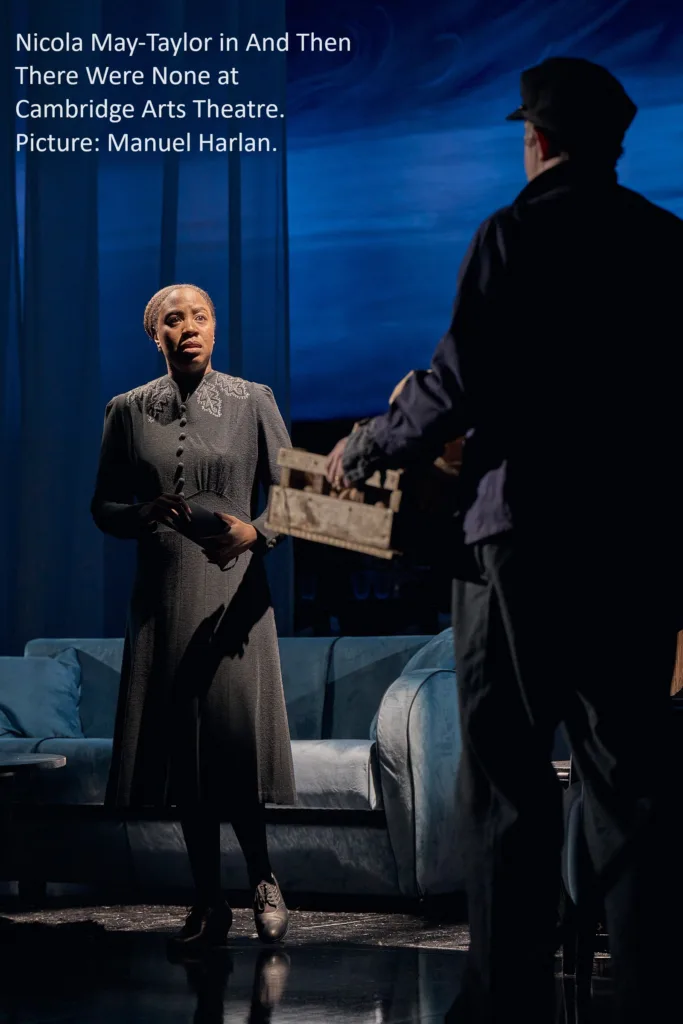
Directed by Lucy Bailey, this murder mystery morality tale is a nicely choreographed, horrible night out, which was absolutely lapped up by a full house at Cambridge Arts Theatre. A ghastly evening enjoyed by all.
And Then There Were None is at Cambridge Arts Theatre until Saturday, November 18 then touring.

